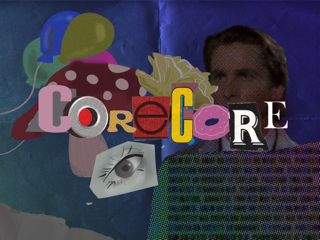Cottagecore. Fairycore. Balletcore. Clean girl. VSCO girl. Voidcore. Gothcore. Cinnamon girl.
If you are a TikTok user in 2023, you’ve heard all of these terms and a myriad more.
The aesthetics, items and music that these categories are composed of have always existed. The obsessive labeling of them has not. Each trend has risen to the forefront of social media apps. When you’re scrolling through posts, items of clothing, musical artists, or behaviors are being forced to fit into niches. The pressure on social media users to conform to a singular niche runs high.

Some internet users have taken note of the phenomenon. The term “corecore” was coined in late 2022 as an anti-trend that plays on the categorization of internet aesthetics through the suffix “-core.” Core signifies a genre or movement after a descriptive word of what that style means.
People have various definitions of the trend since it’s a new phenomenon arising from an ever-changing internet space. On platforms such as Twitter and Tumblr, corecore is defined as a pun on the oversaturation of the term “-core.” There are many trend categories, so why not have a category that is the category itself? The platforms say that corecore is a play on how ridiculous it is to have everything internet users do put into boxes.
On newer platforms like TikTok, corecore refers to a type of video compiling memes, other users’ videos, emotional and philosophical ponderings and current event reporting. Seemingly unrelated music plays in the background to say something about our existence as humans on social media.
Either way, the term’s existence is a poignant commentary on the oversaturation of specific online niches in today’s world.
Social media pressure and the projection of our lives online cause internet users to conform to an aesthetic. But what’s the benefit of that? Why categorize ourselves at every chance we get? It only limits our self-expression.
It’s true that labels can be beneficial. They can help people find online communities, ones that don’t exist in real life and ones that give people comfort. I’m not here to yuck anyone’s yum or deny people the belonging that online communities might offer. What is important is that it is unnecessary and exhausting to pin a name to every little thing we do.
You don’t have to be a “vanilla girl” to wear sweet perfume and pink. Listening to Alex G doesn’t make you indie, and wearing archive, torn clothing doesn’t instantly make you “apocalypse-core.”
Self-expression is wearing what you want, listening to what you want, and existing in a variety of spaces as a multitude of things.
Conforming to one category can limit us. It creates judgment for stepping out of someone’s perceived aesthetic.
Aesthetics don’t define us, and neither should social media trends.



















































































































